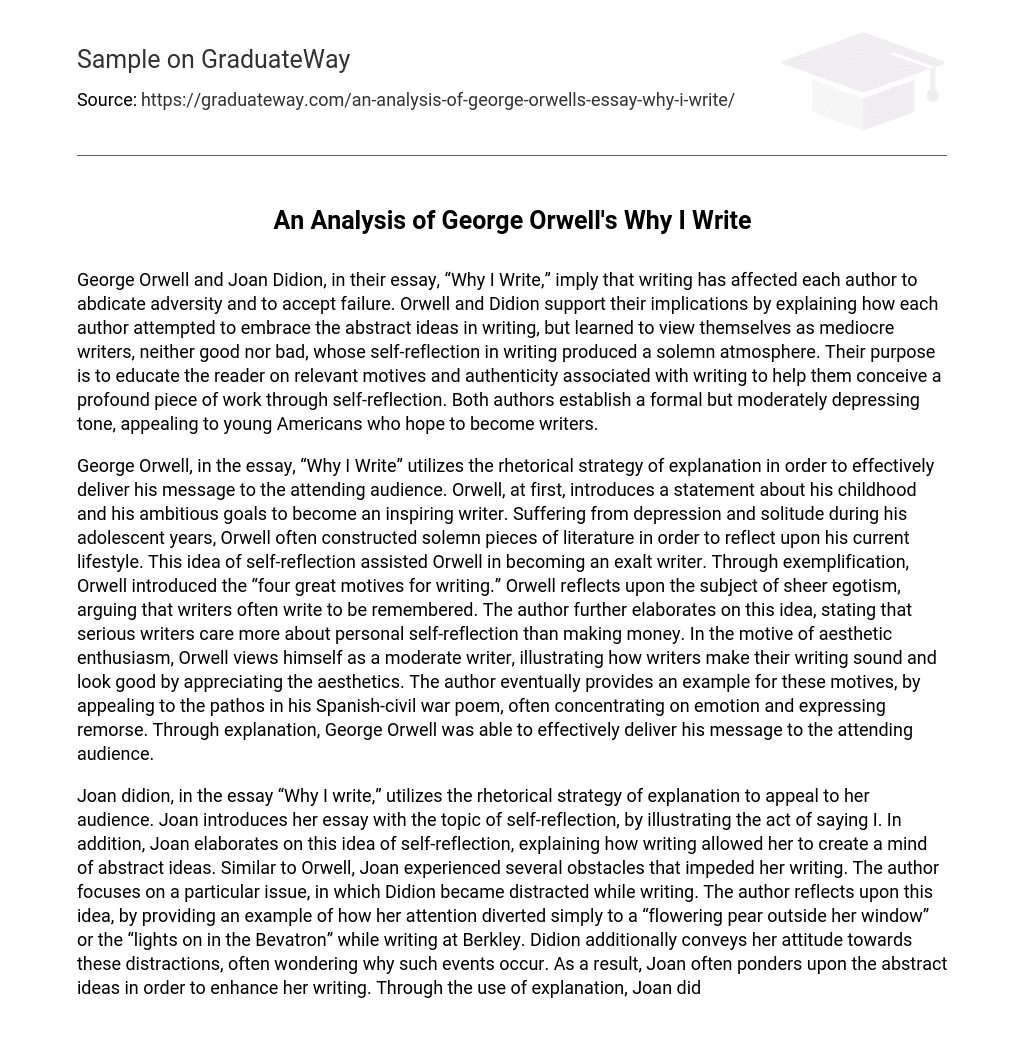George Orwell and Joan Didion assert in their essay, “Why I Write,” that writing has influenced them to overcome adversity and accept failure. They support their claims by explaining their efforts to engage with abstract concepts in writing, only to discover that they see themselves as average writers, neither talented nor untalented, whose introspection through writing generates a somber atmosphere. Their goal is to enlighten readers about the motivations and authenticity associated with writing, in order to help them develop a profound work through self-reflection. Both authors establish a formal yet somewhat melancholic tone, appealing to aspiring young American writers.
In his essay “Why I Write,” George Orwell effectively delivers his message to the attending audience by utilizing the rhetorical strategy of explanation. Orwell begins by discussing his childhood and his ambitious goals to become an inspiring writer. During his adolescent years, he experienced depression and solitude, which led him to create solemn pieces of literature for self-reflection. This practice of self-reflection played a significant role in Orwell’s development as a renowned writer. Through exemplification, Orwell introduces the “four great motives for writing.” He starts by examining sheer egotism and argues that writers often write to be remembered. Additionally, he emphasizes that serious writers prioritize personal self-reflection over making money. In the motive of aesthetic enthusiasm, Orwell positions himself as a moderate writer, emphasizing the importance of appreciating the aesthetics to make writing sound and look good. Furthermore, Orwell provides an example for these motives by appealing to the pathos in his Spanish-civil war poem, which focuses on emotion and expresses remorse. Overall, through his use of explanation, George Orwell effectively delivers his message to the attending audience.
Joan Didion appeals to her audience in her essay “Why I Write” by utilizing the rhetorical strategy of explanation. She begins by discussing self-reflection and the act of saying “I.” She further explores this concept by explaining how writing allows her to delve into abstract ideas. Like Orwell, Didion faces obstacles that hinder her writing, focusing on one particular distraction she experienced. She reflects on how her attention wandered to things such as a “flowering pear outside her window” or the “lights on in the Bevatron” while writing at Berkley. Didion questions why these distractions occur and often muses on abstract ideas to enhance her writing. By employing explanation, Didion effectively conveys her message to the audience in attendance.
George Orwell and Joan Didion both utilize the rhetorical strategy of explanation in their works, “Why I Write,” with the aim of effectively engaging their audience. While both authors offer illustrative evidence to support their claims, they also appeal to pathos and emphasize the importance of contemplating abstract concepts in writing, thus further captivating their readers.





